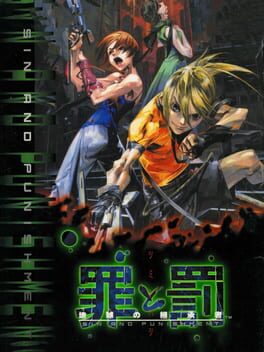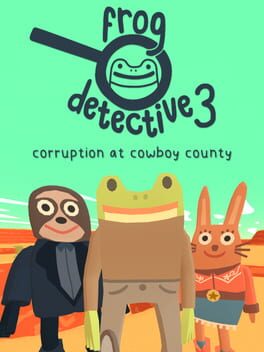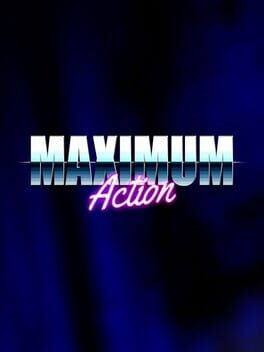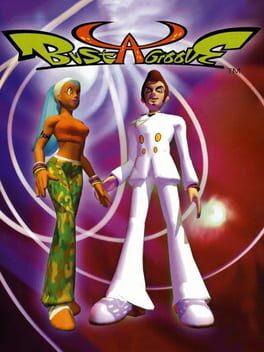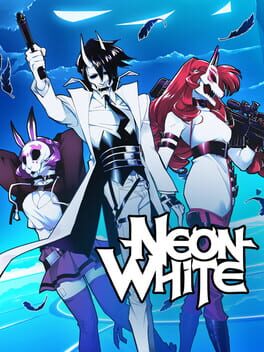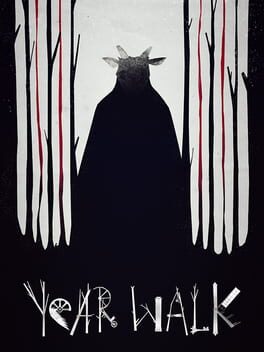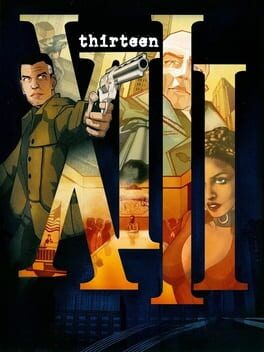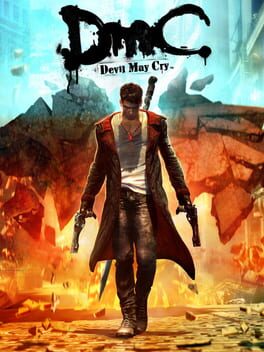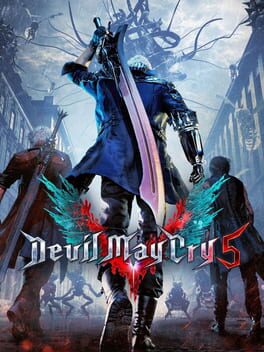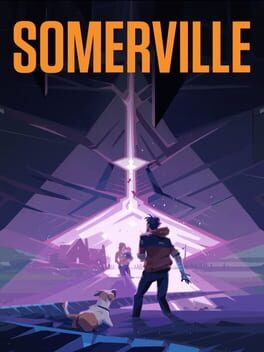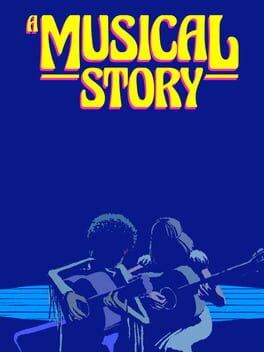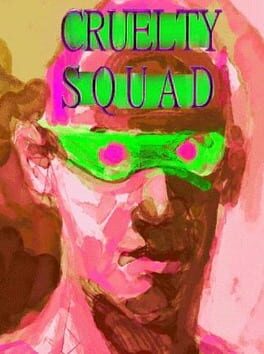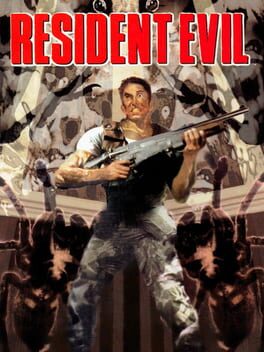Sci_Karate
BACKER
2000
Sin and Punishment is the best game on the N64.
At least, it's my favorite on the platform. Most N64 games have aged terribly or have been iterated on over the past twenty years (e.g. Mario 64 and Ocarina both have later entries that improve upon their design) but Sin and Punishment stands unmatched. It is a remarkable work of action game design and should be a frequent point of reference for any modern-day games lover.
At least, it's my favorite on the platform. Most N64 games have aged terribly or have been iterated on over the past twenty years (e.g. Mario 64 and Ocarina both have later entries that improve upon their design) but Sin and Punishment stands unmatched. It is a remarkable work of action game design and should be a frequent point of reference for any modern-day games lover.
2001
Final Fantasy X is a really compelling case study in JRPG voice acting.
There are a lot of lines that feel like they would hit with huge emotional weight if they were just in a textbox on a PS1, but the delivery is sometimes so strange it takes me out of the experience.
To be clear: i love me some hokey dub delivery! I'll play MGS3 any day! But it feels different here, somehow.
It's also very interesting to compare with FFXIII, given that game was and is maligned by fans for being overly linear. Final Fantasy X doesn't give the player any freedom whatsoever until right before the final showdown with the big bad, yet I've never heard similar criticism for constrictive structural design thrown its way.
Anyway - FFX is a strange duck, especially when compared with other Square RPGs from before and since. It made me cry, it was mechanically compelling, and if you're into these sorts of games at all you should play it.
There are a lot of lines that feel like they would hit with huge emotional weight if they were just in a textbox on a PS1, but the delivery is sometimes so strange it takes me out of the experience.
To be clear: i love me some hokey dub delivery! I'll play MGS3 any day! But it feels different here, somehow.
It's also very interesting to compare with FFXIII, given that game was and is maligned by fans for being overly linear. Final Fantasy X doesn't give the player any freedom whatsoever until right before the final showdown with the big bad, yet I've never heard similar criticism for constrictive structural design thrown its way.
Anyway - FFX is a strange duck, especially when compared with other Square RPGs from before and since. It made me cry, it was mechanically compelling, and if you're into these sorts of games at all you should play it.
2018
1998
2022
I'm really conflicted on Neon White.
The music is great.
The gameplay is great.
The narrative is disappointing.
There were a lot of places I thought the narrative would go that it didn't. The third act feels like color-by-numbers anime writing, and the ending feels like a hugr anticlimax. That said, the characters remain charming in a sort of kitschy shonen archetype sort of way.
I think you can tell from watching a trailer and 30 seconds of gameplay whether this is your cup of tea or not.
The music is great.
The gameplay is great.
The narrative is disappointing.
There were a lot of places I thought the narrative would go that it didn't. The third act feels like color-by-numbers anime writing, and the ending feels like a hugr anticlimax. That said, the characters remain charming in a sort of kitschy shonen archetype sort of way.
I think you can tell from watching a trailer and 30 seconds of gameplay whether this is your cup of tea or not.
2013
The early 2010s saw a slew of indie games developed for mobile devices that tried to explore new avenues of interactive storytelling - like Superbrothers, Monument Valley, Reigns, and Year Walk.
At the time, I think these titles garnered a little more praise than they would have in a different context. Mobile gaming had given us toys like Angry Birds, but these new works felt like capital A "Art" on a device you carried with you everywhere.
What I'm trying to get at is this: I can see why people loved Year Walk when it came out. For a 2013 iOS game, it is creative and bold. But on its own merits, removed from context? It's just okay.
At the time, I think these titles garnered a little more praise than they would have in a different context. Mobile gaming had given us toys like Angry Birds, but these new works felt like capital A "Art" on a device you carried with you everywhere.
What I'm trying to get at is this: I can see why people loved Year Walk when it came out. For a 2013 iOS game, it is creative and bold. But on its own merits, removed from context? It's just okay.
2022
2003
XIII is suprisingly good for a 2003 ubisoft stealth shooter.
The cast is lead by David Duchovny and Adam West. The comic book cel-shading is evocative and charming. The music is regularly entertaining.
But the game just doesn't come together.
Both West and Duchovny deliver lines in a bored monotone - there's a reason Actors and Voice Actors are often considered distinct categories. They're distinct skills!
The shooting is above-average for 2003, but clunky and irritating for 2022.
The checkpoint system is often infuriating.
The stealth is wonky and underdeveloped.
The narrative ends on a cliffhanger and a "To be continued" that has never been resolved.
There's a good game in here. It's just buried under mediocrity.
The cast is lead by David Duchovny and Adam West. The comic book cel-shading is evocative and charming. The music is regularly entertaining.
But the game just doesn't come together.
Both West and Duchovny deliver lines in a bored monotone - there's a reason Actors and Voice Actors are often considered distinct categories. They're distinct skills!
The shooting is above-average for 2003, but clunky and irritating for 2022.
The checkpoint system is often infuriating.
The stealth is wonky and underdeveloped.
The narrative ends on a cliffhanger and a "To be continued" that has never been resolved.
There's a good game in here. It's just buried under mediocrity.
2013
In my time Online, I've gathered that most Devil May Cry fans hate DmC: DmC.
This is a little unfair - the game isn't bad, per se.
It's just not good, either.
Mario Kart simplifies racing controls by removing the idea of a transmission.
Racing sim-lites like Forza encourage manual transmission and good gear selection - some corners are impossible to take properly without good gear management.
Applying Mario Kart's controls to a racing sim would be Bad. While the controls are more intuitive to pick up, removing the ability to shift would leave players inadequately equipped for higher-level play.
The lack of lock-on, the simplification of combos, and the de-emphasization of directional inputs does make DmC: DmC more accessible, but on higher difficulties it feels like the player controls are mismatched with the game's complexity.
This is especially true in the Vergil DLC - I'm not much of a Vocal Gamer, but there were quite a few "Oh, Come on!!"s shouted on my couch due to camera lock-on issues.
There are lots of other things that are irritating - linearization of combat due to red/white enemy types, trigger-holding for weapon swaps, simplification of weapon rhythmn, lack of enemy variety, difficult-to-read color palettes - but I find myself still reticent to call DmC outright Bad.
It's just that, with the possible exception of Devil May Cry 2, it's leagues worse than any other Devil May Cry game.
This is a little unfair - the game isn't bad, per se.
It's just not good, either.
Mario Kart simplifies racing controls by removing the idea of a transmission.
Racing sim-lites like Forza encourage manual transmission and good gear selection - some corners are impossible to take properly without good gear management.
Applying Mario Kart's controls to a racing sim would be Bad. While the controls are more intuitive to pick up, removing the ability to shift would leave players inadequately equipped for higher-level play.
The lack of lock-on, the simplification of combos, and the de-emphasization of directional inputs does make DmC: DmC more accessible, but on higher difficulties it feels like the player controls are mismatched with the game's complexity.
This is especially true in the Vergil DLC - I'm not much of a Vocal Gamer, but there were quite a few "Oh, Come on!!"s shouted on my couch due to camera lock-on issues.
There are lots of other things that are irritating - linearization of combat due to red/white enemy types, trigger-holding for weapon swaps, simplification of weapon rhythmn, lack of enemy variety, difficult-to-read color palettes - but I find myself still reticent to call DmC outright Bad.
It's just that, with the possible exception of Devil May Cry 2, it's leagues worse than any other Devil May Cry game.
2019
Devil May Cry 5 is the best character action game ever made.
It's hard to think of anything interesting to say other than "this game goes hard as hell".
The boss selection is a little lacking - compared to the sheer variety of DmC 3 or the scale and scope of Bayonetta, DmC 5 drops the ball.
But I refuse to offer any other complaints because this game goes hard as hell.
Then again, it's difficult to judge how genuinely good it is. I've played every DmC and every Bayonetta by now - perhaps the controls in DmC 5 feel so intuitive and clean to me because of all the background I've developed. Maybe if I came to DmC without all the prerequisite coursework I would feel differently.
Even so, this game goes hard as hell and you should play it.
It's hard to think of anything interesting to say other than "this game goes hard as hell".
The boss selection is a little lacking - compared to the sheer variety of DmC 3 or the scale and scope of Bayonetta, DmC 5 drops the ball.
But I refuse to offer any other complaints because this game goes hard as hell.
Then again, it's difficult to judge how genuinely good it is. I've played every DmC and every Bayonetta by now - perhaps the controls in DmC 5 feel so intuitive and clean to me because of all the background I've developed. Maybe if I came to DmC without all the prerequisite coursework I would feel differently.
Even so, this game goes hard as hell and you should play it.
2022
Somerville is a beautifully animated, well-scored, compelling narrative about a man on the search for his family.
It's a shame that it's not a very good game, especially when compared to its peers.
Many of its greatest issues could be fixed through post-launch patches, but even with technical issues aside, I'm disappointed by what this could have been.
I'm hopeful that Jumpship can learn from mistakes made here for their next outing - the bones of a truly great game are buried somewhere inside Somerville.
It's a shame that it's not a very good game, especially when compared to its peers.
Many of its greatest issues could be fixed through post-launch patches, but even with technical issues aside, I'm disappointed by what this could have been.
I'm hopeful that Jumpship can learn from mistakes made here for their next outing - the bones of a truly great game are buried somewhere inside Somerville.
2022
"Rythm game" is a partial misnomer for most "rhythm games", but A Musical Story is truly deserving of the title.
It's an interactive 70s psych concept album with beautiful art, and that's enough for me.
I think rhythm games are an underexplored genre -- I blame this largely on Guitar Hero's introduction and then popularization of many genre conventions that newer titles can't seem to shake.
Guitar hero (and many others) gamify music by asking you to hit the correct inputs as they pass under a line (or using some other visual indicator). However, this often emphasizes input complexity rather than any sense of actual rhythm. You could have no grasp of the beat at all, and the visual indicators would still carry you through the experience.
Put another way: guitar hero and rock band are far more interested in your fret hand than your pick hand.
This is interesting, and maybe a little sad, because we call these "rhythm games", yet rhythm is the aspect of music they emphasize least.
There are rhythm games that buck this trend - "Rhythm Heaven" and "Osu!" come to mind immediately. Yet these are really exceptions to the rule.
Rhytmn games also tend to be random assemblages of music rather than cohesive albums. This is a little disappointing for multiple reasons. For one, something like a leitmotif in a rhythm game is far more impactful than in a non-interactive medium, because you get a direct mechanical reward for identifying the repeated phrase. For two, albums are cool, and tying the arc of an album to a mechanical arc is doubly cool.
There are, again, exceptions here: the 2019 game "Sayonara Wild Hearts" advertises itself firstly as a Pop Album and secondly as a video game; Guitar Hero 6's story mode includes a full playthrough of 2112; Ape Out's integration of gameplay and soundtrack along with the album motif is very cool.
All of this is to say: if you, like me, have ever thought "I wish there was a stripped-back rhythmn game that challenged me to play interesting and unconvential rhythmns a la Rhythmn Heaven, while playing through a bespoke album with gorgeous visuals a la Sayonara Wild Hearts", then you should play a Musical Story. The story is also pretty alright, I suppose.
You could argue that not loving the story is a pretty sever condemnation for a game whose title is literally "A Musical Story", but I don't think it's a huge deal. I can't think of a concept album that's revered for it's narrative twists and turns, but folks love them anyway.
I'm not trying to say that A Musical Story is the best rhythm game ever, or even that it's a "Great" game.
But it's at least very good, and it's not quite like anything else I've played. That's all I really want from a game anymore.
It's an interactive 70s psych concept album with beautiful art, and that's enough for me.
I think rhythm games are an underexplored genre -- I blame this largely on Guitar Hero's introduction and then popularization of many genre conventions that newer titles can't seem to shake.
Guitar hero (and many others) gamify music by asking you to hit the correct inputs as they pass under a line (or using some other visual indicator). However, this often emphasizes input complexity rather than any sense of actual rhythm. You could have no grasp of the beat at all, and the visual indicators would still carry you through the experience.
Put another way: guitar hero and rock band are far more interested in your fret hand than your pick hand.
This is interesting, and maybe a little sad, because we call these "rhythm games", yet rhythm is the aspect of music they emphasize least.
There are rhythm games that buck this trend - "Rhythm Heaven" and "Osu!" come to mind immediately. Yet these are really exceptions to the rule.
Rhytmn games also tend to be random assemblages of music rather than cohesive albums. This is a little disappointing for multiple reasons. For one, something like a leitmotif in a rhythm game is far more impactful than in a non-interactive medium, because you get a direct mechanical reward for identifying the repeated phrase. For two, albums are cool, and tying the arc of an album to a mechanical arc is doubly cool.
There are, again, exceptions here: the 2019 game "Sayonara Wild Hearts" advertises itself firstly as a Pop Album and secondly as a video game; Guitar Hero 6's story mode includes a full playthrough of 2112; Ape Out's integration of gameplay and soundtrack along with the album motif is very cool.
All of this is to say: if you, like me, have ever thought "I wish there was a stripped-back rhythmn game that challenged me to play interesting and unconvential rhythmns a la Rhythmn Heaven, while playing through a bespoke album with gorgeous visuals a la Sayonara Wild Hearts", then you should play a Musical Story. The story is also pretty alright, I suppose.
You could argue that not loving the story is a pretty sever condemnation for a game whose title is literally "A Musical Story", but I don't think it's a huge deal. I can't think of a concept album that's revered for it's narrative twists and turns, but folks love them anyway.
I'm not trying to say that A Musical Story is the best rhythm game ever, or even that it's a "Great" game.
But it's at least very good, and it's not quite like anything else I've played. That's all I really want from a game anymore.
2021
Cruelty Squad is often infuriatingly opaque. I have no Idea how you could finish this game without either using a wiki or losing your mind.
That said, if you are willing to do some googling - it's incredible. It's not the best immersive sim I've played, but it's certainly the most unique, and I appreciate it for that.
If you like playing strange games just to see what can be done with the medium, you should play Cruelty Squad.
That said, if you are willing to do some googling - it's incredible. It's not the best immersive sim I've played, but it's certainly the most unique, and I appreciate it for that.
If you like playing strange games just to see what can be done with the medium, you should play Cruelty Squad.
1996
I enjoyed Resident Evil, and I appreciate its contributions to the medium, but some elements of the design have aged so poorly they've become outright offensive.
This is made more egregious in the wake of an ongoing survival horror renaissance, with titles like Signalis and the Resident Evil 2-3 remakes polishing off the sharpest edges of the original Resident Evil's formula.
That said - the game is still fundamentally good, just occasionally infuriating.
This is made more egregious in the wake of an ongoing survival horror renaissance, with titles like Signalis and the Resident Evil 2-3 remakes polishing off the sharpest edges of the original Resident Evil's formula.
That said - the game is still fundamentally good, just occasionally infuriating.
